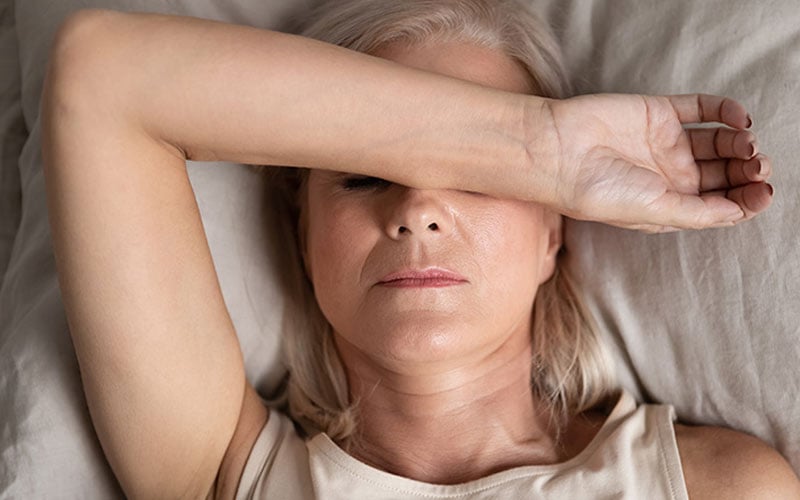Fatigue After Cancer
At Rocky Mountain Cancer Centers, we know that not all cancer patients will experience the same thing when it comes to the side effects of cancer treatment. Some patients may experience hair loss while others won’t. The same can be said when it comes to nausea and vomiting, as well as many other side effects. One side effect that most cancer patients and cancer survivors do share, however, is fatigue. It’s the most common side effect of cancer treatment both during and after cancer treatment.

What is Fatigue?
For healthy people, fatigue is an extreme tiredness that can often be cured by taking a nap or getting a full night of restful sleep. For cancer patients and survivors, it’s not so easy.
Ask any cancer patient or survivor to describe fatigue and you’ll likely hear a definition that goes much deeper than simply feeling tired. For them, cancer-related fatigue usually doesn’t disappear after sleep or rest. It can overtake the body differently than it does in a healthy individual. Cancer patients and survivors often describe their fatigue as feeling slow, weak, exhausted, and simply feeling a lack of physical and mental energy. And, unfortunately, this fatigue can be experienced at some level for months or even years after their cancer treatment ends.
Should You Be Concerned About Fatigue?
Surviving cancer can be both physically and emotionally exhausting. While fatigue is not a welcome side effect, it isn’t one you should necessarily worry about. For many, it’s considered more of a nuisance than anything else.
However, if left untreated, fatigue can have a huge impact on your quality of life. Once cancer treatment is over, you may be anxious to get back to your pre-cancer activities— but there may be times when fatigue holds you back. Fatigue may cause you to:
- Experience mood swings
- Sleep in longer or rest more often than usual
- Miss work
- Avoid attending social events
- Skip exercise
- Feel depressed and/or hopeless
- Spend less time with friends
- Shirk daily tasks such as cleaning your house, buying groceries, etc.
In other words, fatigue can prevent you from enjoying the fulfilling, post-cancer lifestyle you desire and deserve.
Treating Cancer-Related Fatigue
Anemia (when the blood circulating through the body does not have enough healthy red blood cells) is one main cause of post-cancer fatigue. Because of this, we encourage you to speak with your doctor about whether or not you should get a simple blood test for anemia. If you receive an anemia diagnosis, your doctor may recommend ways to treat your anemia, along with the fatigue. Treating anemia could involve:
- Including more iron-rich foods like leafy greens such as spinach, red meats, fish, and poultry into your diet
- Prescription medication that may increase the production of your body’s red blood cells
- Getting a blood transfusion to increase the number of red blood cells in the body
In addition to treating the anemia, there are other ways to minimize the fatigue itself, including:
- Making adjustments to any pain medications you are taking
- Taking medication or participating in counseling to alleviate depression
- Adding exercise you can tolerate despite your low energy into your routine
- Getting into a regular sleep routine which includes:
- Taking less naps during the daytime
- Going to bed at a set time each night
- Avoiding electronic stimulation for an hour before going to sleep
Remember, fatigue by itself is not a life-threatening effect of cancer treatment. However, it can have a negative effect on your daily quality of life. If you’re experiencing post-cancer fatigue, please reach out to your RMCC oncologist or cancer care team for help.